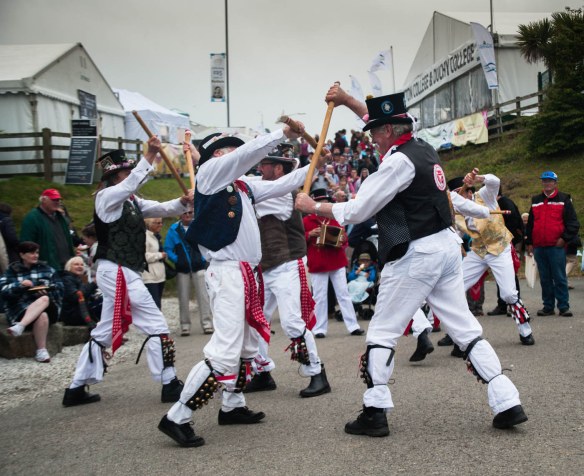In case you don’t think the world’s strange enough, an international ring of toy thieves is stealing Legos. Not that jumble of Lego’s you stashed behind the couch to pacify the kids from down the block when they stop by. Sure, those are useful. They keep the kids from tipping over the refrigerator, but the thieves are a more discerning bunch. What they want are Lego sets.
We can blame Lego itself for this if we’re in the mood. They started producing limited edition sets aimed at collectors.
And there you were, thinking toys were something kids played with and dripped chocolate ice cream on. Shows what you know. Toys are something you leave in the box and collect, thank you. If you never open the package, they’re worth more than if you crack the lid just to breathe the rarified air inside. A set that sold for $150 in 2007 (this is allegedly a kids’ toy, remember, selling for $150) can now go for $3,000. If and only if it hasn’t been opened.
Can we agree that collecting them makes no sense at all? It’s so easy to get wrong. You can get in on the right trend at the wrong moment, when the price isn’t going up anymore, or just before it drops. You can misread the trends and collect the wrong thing, ending up with something you can’t eat, can’t wear, can’t live in, and can’t even play with because, who knows?, the damned thing might be collectible in another year or three..
Which may be why people steal them. It takes all the uncertainty out of collecting. And as long as you don’t get caught, it’s an economically viable plan.
Home, digital home
A digital home–in other words, a house that doesn’t really exist–has sold for $500,000. Or if you count in ethers, for 288 of them.
What’s an ether? A cryptocurrency.
Can you buy anything other than imaginary houses with it? Probably, but listen, this really isn’t my area of expertise.
What is my area of expertise? Well, I’m not a bad baker and I passed myself off as a competent editor when I was working. And I wasn’t bad as a cab driver either.
So–final question–what can you do with a very expensive imaginary house? Explore it. In 3D. Or explore it–and I’m going to have to quote here, because I haven’t a clue what this means and don’t necessarily want to–“using virtual reality (a digital world) or, in future, augmented reality (where digital elements added to a view of the real world).”
At the moment, it’s set in a Mars-like landscape. I think that quote means you can move it if you want to.
Life and death in a monarchy
As I write this, on March 9, all news has been suspended because Prince Philip died. You know Prince P: the queen’s husband, the Duke of Edinburgh.
The first news bulletin announced that the Duke of Edinburgh had died.
The second news bulletin announced that the Duke of Edinburgh was still dead.
The third news bulletin told us in detail that he always appeared in public wearing two shoes, both on his feet.
A later news bulletin detailed the however-many-gun salutes that were set off.
After that, everybody who’d ever seen a picture of him or could spell his name was interviewed live on radio or television, or not-quite-live by the print media. When the interviews ended, the news outlets all traded sources and started over.
This has edged out everything except the weather. Those loyalist kids in Northern Ireland protesting the Brexit border that now separates Northern Ireland from the rest of the UK? They’ll have to do more than set fire to a bus and roll it downhill to make the news for the few nights. (If I’m wrong about that, I apologize. I wrote this on Friday night and it won’t post till Sunday.)
I’m late in offering this, but I have a bit of advice for the kids: I’ve listened to enough folk songs to know that if you swim down below the waterline and take out your trusty little knife, you can sink an island by making holes and letting the water in. Now that would grab headlines.
Or maybe it only works on ships. I should’ve paid more attention.
Anyway, the loyalists are the ones who want to stay with the United Kingdom. They’re not in a great position to complain when the queen’s husband bumps them out of the headlines.
As a mark of respect, the Labour Party suspended its campaign for the May elections.
What? The Labour Party supports the monarchy? Let’s say it doesn’t oppose it. That would be like touching the third rail of British politics. The Green Party, the Scottish National Party, and Plaid Cymru (the Welsh nationalist party) also suspended campaigning, although the nationalist parties want to leave not just the union but also the queen and the rest of her family, and the Greens have “a clear commitment to divesting the monarchy of its legislative, executive and judicial roles.”
That’s not quite the same as abolishing the monarchy. Or maybe it is–I can’t quite tell. Whatever it means, it’s very carefully worded.
The Liberal Democrats and the Conservatives have also suspended their campaigns, but I’d expect that.
A friend assures me that life will go back to normal any day now, all I have to do is sit still and wait. In the meantime, we’ll all be pious, and I expect I will have offended more than one reader by making light of it. Sorry. People do die, and many of those deaths I regret deeply. This isn’t one of them. You’re welcome to your own reverence. Me, I’m trying to find the narrow footpath between respecting other people feelings and not censoring myself.
Sorry, I think I just trampled somebody’s flowers.
The weather, by the way, held its place in the evening newscasts. This is Britain. Princes may come and princes may go, but the weather goes on forever.
Your bit of redemptive news
After a spate of hate crimes against Asian Americans, a New Yorker, Maddy Park, found herself terrified on her thirty-minute subway ride home. No one attacked her and no one called her names, but the strain was enough to get her thinking: She could afford a cab, but not everyone could. So with some friends and $2,000 of her own money, she started an Instagram account to pay for other people’s cab rides. “I just said look, I have $2,000, if you need a ride, just charge me on Venmo,” Park said.
What’s Venmo? A digital wallet. If you have to ask, you’re at least as old as I am. Now be nice and don’t ask me how it works.
Within 48 hours, she’d raised $100,000.
The Instagram text invites Asian women and elderly Asians in New York to charge up to $40 for an Uber or a Lyft to @CafeMaddyCab. A later addition includes Asian LGBTQ people. At last call, she was planning to expand the program since not many seniors know how to use
Tell me about it.
“People who are donating are people from all across the nation, across all races, ethnicities,” Park said, “and they just sent me messages saying, listen, we really want you guys to be safe too and we’re donating so that more people can take rides in the city. It really opened my eyes to how many people are actually supporting the Asian community in New York City.”










